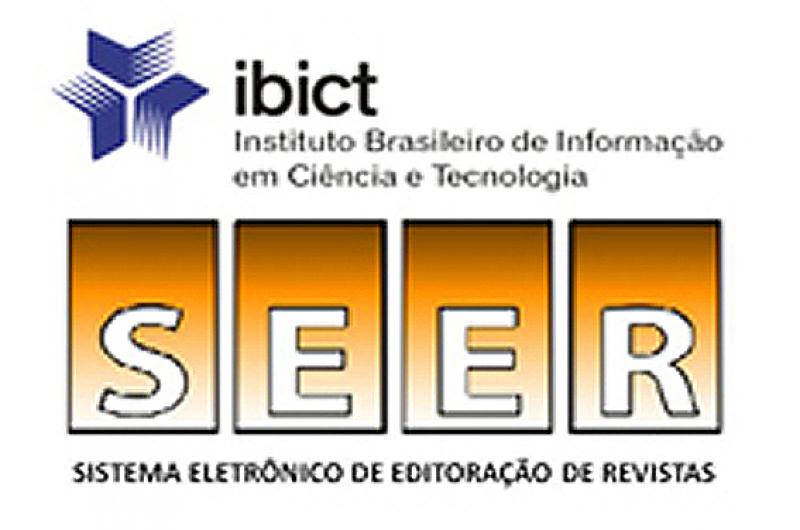Development of free and open-source software by online communities: the Openredu.org case
DOI:
https://doi.org/10.31416/rsdv.v10i2.367Keywords:
development, free and open-source software, educational social network, Openredu.orgAbstract
The development of free and open-source software is seen by many experts and international bodies as strategic for advancing open education policies and social emancipation. The production of this type of software by communities that organize themselves over the Internet generates a public environment for the generation and sharing of technological knowledge through source code. This article presents the main considerations of the Openredu.org free software community, which maintains a social network designed for educational purposes. The community structure and some of its main applications are presented. As a research method, a case study was used, initially carried out through a documental analysis of the items produced and, later, through the collection of testimonies in unstructured interviews. Finally, forum contribution information, code and installation information in the development, approval and production environments are presented.
References
ATSDR, Agency for Toxic Substances & Disease Registry (2011). “Principles of Community Engagement”. Ed 2. Disponível em https://www.atsdr.cdc.gov/communityengagement/ pce_pubdevelopment.html. Acessado em 01 de março de 2018.
APRIL - Promouvoir et défendre le logiciel libre (2007). “The Economic Models of Free Software”. Dis-ponível em https://www.april.org/. Acessado em 01 de março de 2018.
BACON, J. The Art of Community. Sebastopol: O'Reilly, 2009.
BACON, Jono. The art of community: Building the new age of participation. "O'Reilly Media, Inc.", 2012.
BUENO, N. (2012). “Conceitos e discussão sobre software livre, software aberto e software proprietá-rio.” In: Okada, A. (Ed.) (2012) Open Educational Resources and Social Networks: Co-Learning and Pro-fessional Development. London: Scholio Educational Research & Publishing.
DA SILVA, Francisco Romildo (2020). Mobilização de educadores para a comunidade de software livre Openredu.
DA SILVA, Manassés Bispo; GOMES, Alex Sandro. Análise do engajamento no contexto da formação de professores de Música utilizando a Openredu. In: Anais do XXI Workshop de Informática na Escola. SBC, 2015. p. 360-369.
DEACON, John. Model-view-controller (mvc) architecture. 2009.
FELLER, J; FITZGERALD, B; HISSAM, S. and LAKHANI, K. (2005) “Perspectives on Free and Open Source Software” The MIT Press, 1A ed.
GOMES, A. S.; DUARTE, A. P. Rede Social Educacional - REDU. 2014. Patente: Programa de Computa-dor. Número do registro: BR512014000803-7, data de registro: 29/07/2014, título: "Rede Social Educa-cional - REDU", Instituição de registro: INPI - Instituto Nacional da Propriedade Industrial.
GOMES, A. S.; ROLIM, A. L., SILVA, W. M. (Eds.). (2012) “Educar com o Redu” Redu Educational Technology.
HOUAISS, Antônio. Dicionário Houaiss da Língua Portuguesa. Rio de Janeiro, Ed. Objetiva, 2001.
MATSUMOTO, Y. Ruby programming language, version 1.8. 6. 2007.
MEDEIROS, Hugo Augusto Vasconcelos; DA SILVA, Nathalia Luíza Farias. Utilização do Openredu como Ferramenta de Gestão do Conhecimento na Secretaria de Planejamento e Gestão de Pernambuco. In: CONGRESSO SOBRE TECNOLOGIAS NA EDUCAÇÃO (CTRL+E), 4. 2019, Recife. Anais [...]. Porto Alegre: Sociedade Brasileira de Computação, 2019. p. 377-386. DOI: https://doi.org/10.5753/ctrle.2019.8909.
OPENREDU (2015) “Openredu”. Disponível em http://softwarelivre.org/profile/openredu. Acessado em 01 de março de 2018.
RAYMOND, E. S. (2001) “The Cathedral & The Bazaar - Musings on Linux and Open Source by an Acci-dental Revolutionary”, Sebastopol, Ca, O·Reilly.
RHEINGOLD H. (2000). “The virtual community: homesteading on the electronic frontier”. Cambridge (MA): Massachusetts Institute of Technology.
SILVA, Francisco Romildo da. Análise da efetividade de estratégias híbridas de ensino e aprendizagem de Função Afim. / Francisco Romildo da Silva. – Nazaré da Mata: o autor, 2018. 113p.; Il.
VAZ, Juliano CT, et al. Proposta de adequação da arquitetura do AVA Openredu para suporte a técnicas de análise quantitativa de dados educacionais. In: Anais Estendidos do XV Simpósio Brasileiro de Sistemas de Informação. SBC, 2019. P. 1-4.
VOGL, Charles. (2016). “The art of community: Seven principles for belonging”. Berrett-Koehler Publis-hers.
YIN, R.K. Estudo de Caso: planejamento e métodos. 2. ed. Porto Alegre: Bookman, 2001.















